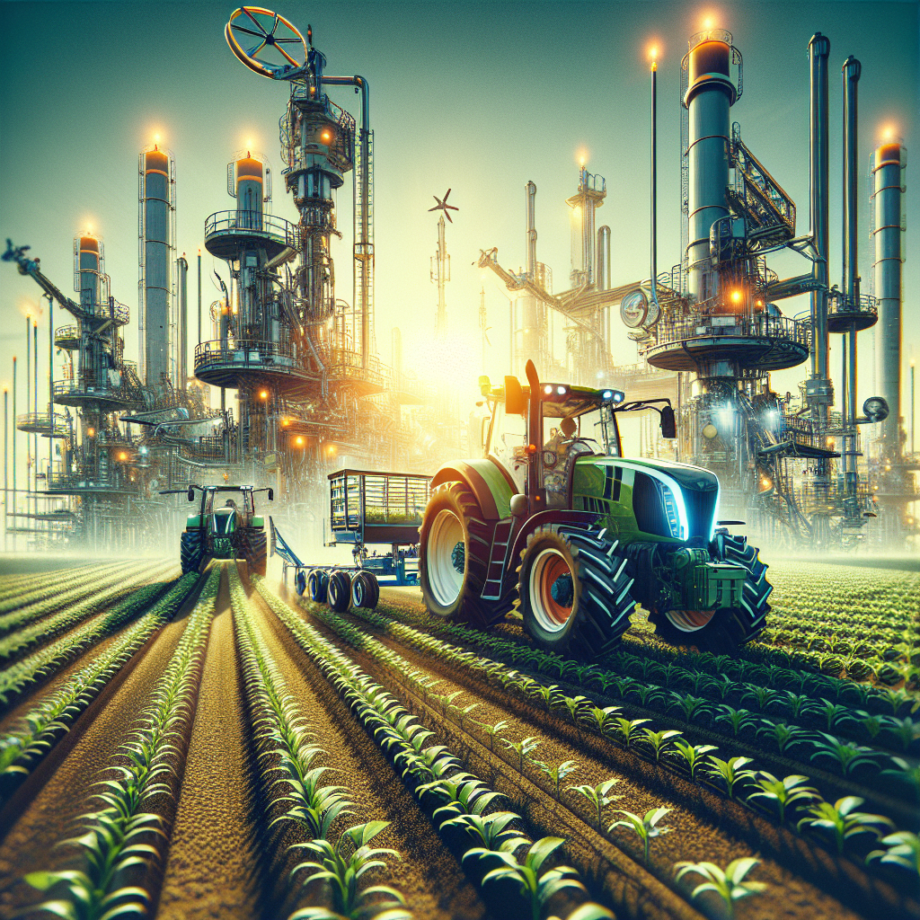Tractors for specialty crops require specific considerations to ensure optimal performance and efficiency. Unlike conventional crops, specialty crops such as vineyards, orchards, and organic farms have unique needs that demand specialized machinery. This article delves into the key factors to consider when selecting tractors for specialty crops, focusing on their unique requirements and the technological advancements that cater to these needs.
Understanding the Unique Needs of Specialty Crops
Specialty crops encompass a wide range of agricultural products, including fruits, vegetables, nuts, and flowers. These crops often require precise and delicate handling, which can be challenging for standard agricultural machinery. The unique needs of specialty crops can be broadly categorized into three main areas: size and maneuverability, soil compaction, and crop-specific attachments.
Size and Maneuverability
One of the primary considerations for tractors used in specialty crop farming is their size and maneuverability. Many specialty crops are grown in tight spaces, such as vineyards and orchards, where rows are narrow and turning space is limited. Tractors designed for these environments are typically smaller and more agile, allowing them to navigate between rows without damaging the crops.
Compact tractors with a narrow wheelbase and a tight turning radius are ideal for these settings. Additionally, features such as four-wheel drive and articulated steering can enhance maneuverability, making it easier to operate in confined spaces. It’s also important to consider the height of the tractor, as low-profile models can prevent damage to overhead branches and trellises.
Soil Compaction
Soil health is crucial for the successful cultivation of specialty crops. Heavy machinery can lead to soil compaction, which negatively impacts root growth, water infiltration, and overall plant health. Therefore, selecting a tractor that minimizes soil compaction is essential.
Tractors with a lighter footprint, such as those with wide tires or tracks, can distribute weight more evenly and reduce soil compaction. Additionally, adjustable tire pressure systems can help optimize ground contact and further minimize compaction. Implementing controlled traffic farming (CTF) practices, where machinery follows the same paths to limit soil disturbance, can also be beneficial.
Crop-Specific Attachments
Specialty crops often require specific attachments and implements to perform tasks such as pruning, harvesting, and spraying. When selecting a tractor, it’s important to ensure compatibility with these specialized tools. For example, vineyard tractors may need attachments for canopy management, while orchard tractors might require equipment for tree shaking and fruit collection.
Modern tractors often come with a range of attachment options and quick-connect systems that allow for easy switching between implements. Hydraulic systems with multiple outlets can also support the operation of various attachments, providing the versatility needed for different tasks throughout the growing season.
Technological Advancements in Specialty Crop Tractors
Advancements in technology have significantly enhanced the capabilities of tractors used in specialty crop farming. From precision agriculture tools to automation and data analytics, these innovations are helping farmers improve efficiency, reduce labor costs, and increase yields.
Precision Agriculture
Precision agriculture involves the use of technology to monitor and manage crop production with high accuracy. GPS-guided tractors, for example, can follow precise paths, reducing overlap and ensuring even coverage of inputs such as fertilizers and pesticides. This not only improves efficiency but also minimizes waste and environmental impact.
Additionally, sensors and drones can provide real-time data on crop health, soil conditions, and weather patterns. This information can be used to make informed decisions about irrigation, pest control, and other management practices. By integrating these technologies with tractor operations, farmers can optimize their use of resources and improve overall crop performance.
Automation and Robotics
Automation and robotics are transforming the way specialty crops are cultivated and harvested. Autonomous tractors and robotic implements can perform tasks such as planting, weeding, and harvesting with minimal human intervention. This is particularly beneficial for labor-intensive crops, where labor shortages and high costs are common challenges.
For example, robotic harvesters equipped with machine vision can identify and pick ripe fruits with precision, reducing the risk of damage and ensuring high-quality produce. Similarly, automated pruning systems can maintain optimal plant structure and health, improving yields and reducing the need for manual labor.
Data Analytics and Farm Management Software
Data analytics and farm management software are becoming increasingly important tools for specialty crop farmers. These systems collect and analyze data from various sources, providing insights into crop performance, resource use, and operational efficiency. By leveraging this information, farmers can make data-driven decisions that enhance productivity and profitability.
For instance, farm management software can track the performance of different tractor models and attachments, helping farmers identify the most effective equipment for specific tasks. It can also monitor maintenance schedules and predict potential issues, reducing downtime and extending the lifespan of machinery.
Conclusion
Choosing the right tractor for specialty crops involves careful consideration of various factors, including size and maneuverability, soil compaction, and compatibility with crop-specific attachments. Technological advancements in precision agriculture, automation, and data analytics are further enhancing the capabilities of these tractors, enabling farmers to improve efficiency and productivity. By understanding the unique needs of specialty crops and leveraging modern technology, farmers can optimize their operations and achieve better outcomes.
